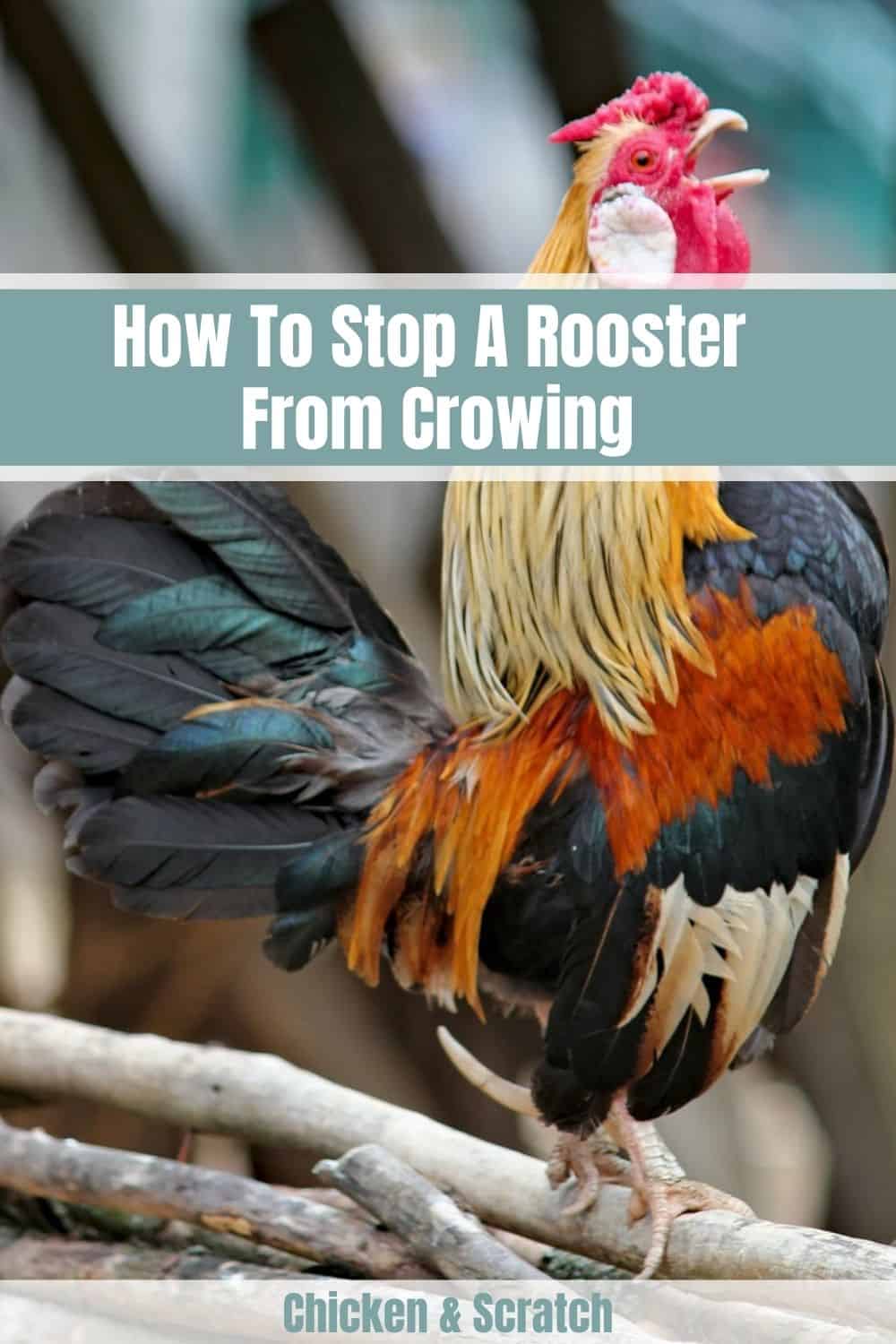Generally, a rooster can crow 12 to 15 times or more daily. Learning why roosters crow may assist you in knowing how to keep a rooster from crowing.
Before discovering how to keep a rooster from crowing, you must first learn why roosters crow and the reasons for their crow.
Crowing is the most natural behavior of roosters. Furthermore, you cannot entirely shut a rooster up without invasive surgery and minimizing territorial and defensive impulses from its environment and its life.
This article will cover
- Why Do Roosters Crow?
- 7 Successful Tips On Keeping Your Roosters From Crowing
- Why Does Your Rooster Totally Stop Crowing?
- Some Noteworthy Tips About Crowing Roosters
Why Do Roosters Crow?
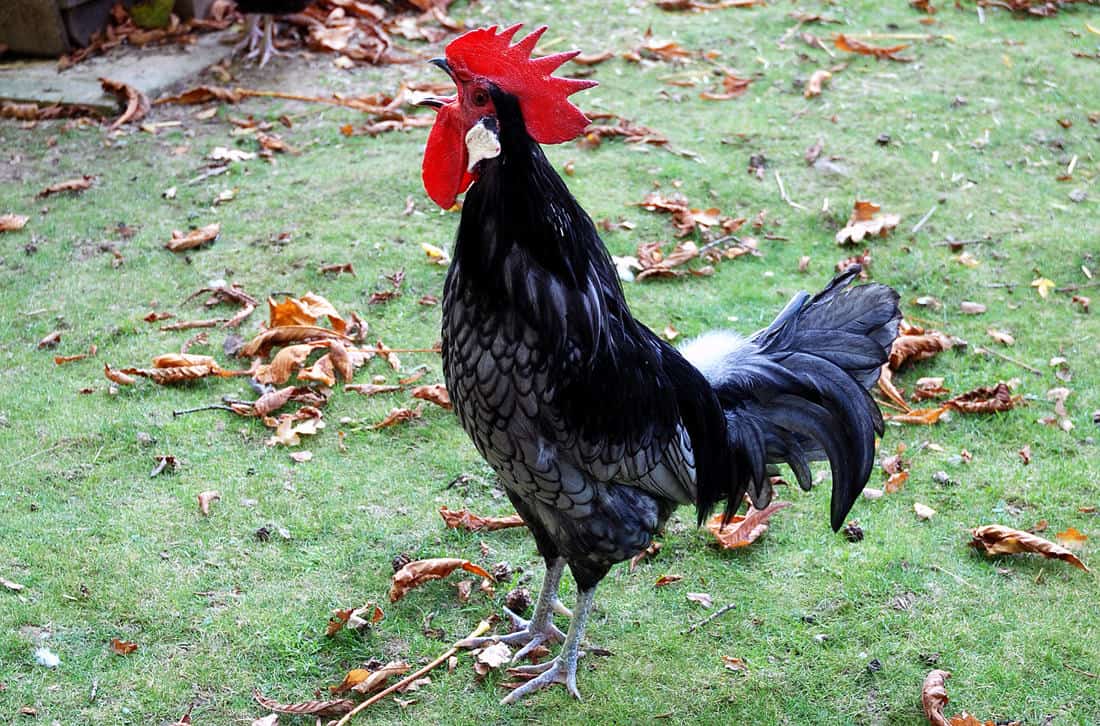
Roosters crow in the dawn, morning, day, and evening for various reasons, some of which are beyond comprehension. Having stated that experts have determined the most frequent crow types and their crowing causes:
Territory Marking
Prior to domestication, roosters were widespread across Southeast Asia. They were primarily found in thick rainforests with dense foliage providing shelter. Due to the dense forest, roosters could not see each other often, and they most likely had to crow to warn others of their presence. Chickens have extraordinary hearing. They will repeatedly crow to assess if the fellow rooster is moving closer or away.
Additionally, crowing to denote their area is a better option than battling each other—also, the crow warns intruders to maintain their distance without jeopardizing their safety. Although roosters will combat if required, they would instead vocally warn rivals to stay away.
Ritual of Mating
Roosters usually crow right after mating. Also, most roosters crow after a hen’s egg-laying. No one understands why this occurs, but it is believed that crowing is a method for the rooster to announce his fertility to other chickens around.
Authorizing Hierarchy
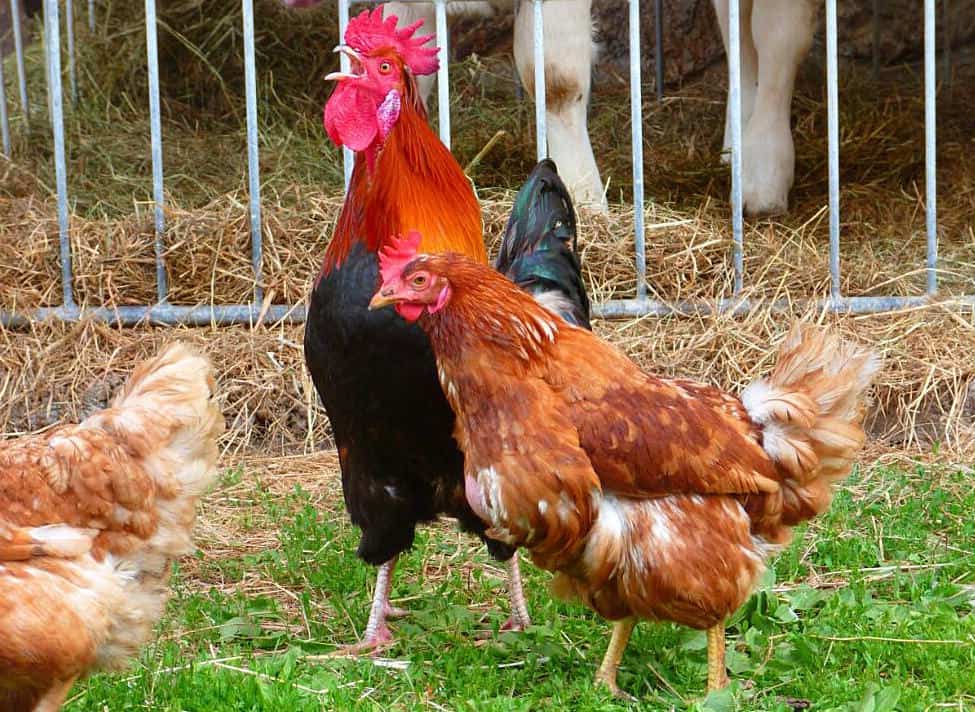
You have almost certainly witnessed this crowing in your flock if you own several roosters. Roosters create a hierarchy via their crowing. Any cluster chicken has a dominant rooster. Usually, the dominating rooster is the first and last to crow.
Following his delivery of the initial crow, the remaining roosters would take turns along a defined pecking order. The top rooster will crow one last time following a series of crowing; it’s as though he’s reiterating his position as leader.
Predator alert
Constantly on the watch for danger, roosters crow to warn their flock that a predator is around. Either a ground or aerial predator, a rooster crows to alert the flock to take refuge.
Body Clock
According to studies, roosters have a testosterone spike in the morning, making them feel the urge to crow. It explains why they crow at daybreak. They are not just responding to the sunlight; they are also getting virulent and energized.
7 Successful Tips On Keeping Your Roosters From Crowing
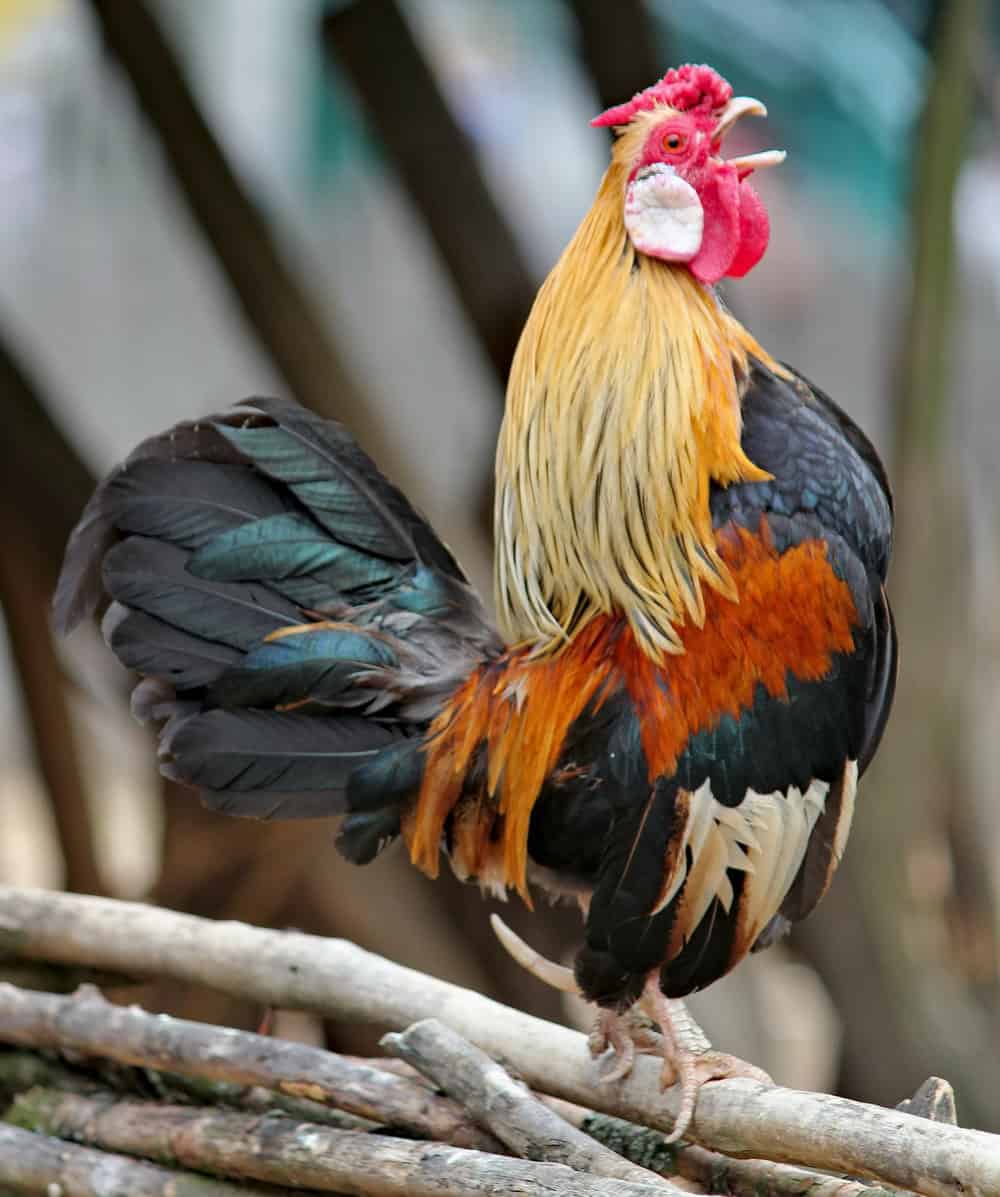
Knowing why roosters crow can assist you in determining how to keep a rooster from crowing. Though many find the rooster’s crow endearing and pleasant, others oppose it. If you dislike your rooster’s crow, especially when it’s too loud, then you must learn how to stop or minimize its crowing.
1. Acquire More Hens
If your flock is depleted of hens, supplement them with more. Some roosters crow to express their dissatisfaction with the number of their flock. It may settle down if you provide a rooster with a couple of hens to dominate about.
As the number of hens increases, fewer roosters will attempt to dominate the chicken coop. This leads to a reduction in crowing because there will not be as many male chickens competing for dominance and attempting to gain mates. Additionally, when extra hens are brought into the mix, they outnumber the males making their dominance even more unlikely as it is nearly impossible for one rooster to compete with several females.
Having more hens in a flock can lead to less rooster crowing because the increased presence of hens allows the roosters an easier time finding mates. Without other opportunities for mating, roosters may resort to frequent and loud calls as an expression of their territorial nature.
This is in order to attract potential hens. Having more hens present give the roosters fewer opportunities to vocalize as they don’t need to call out nearly as much when they feel secure about having a mate.
2. Modify The Environment
According to common belief, chickens are intelligent creatures that, like humans, can become bored. Your roosters could be bored or restless, which triggers them to crow.
You may add anything to the coop to alter the atmosphere for the chickens. You may retain certain non-hazardous items or cubbies for exploration. Change things regularly to make the rooster occupied investigating their new surroundings and may crow too little.
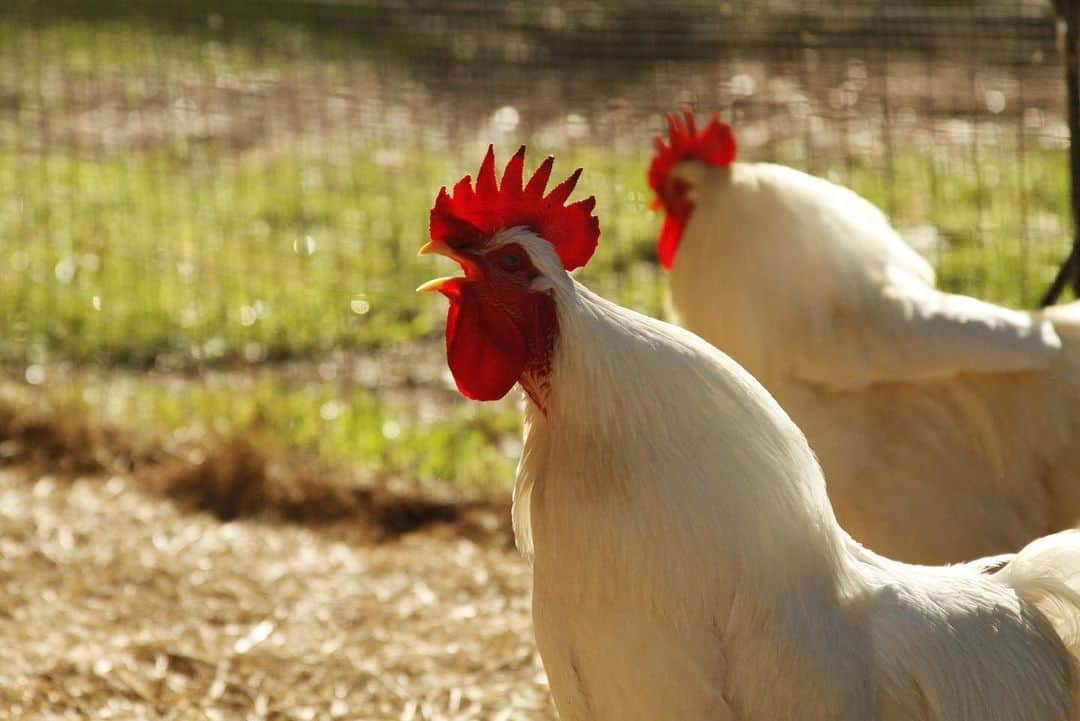
3. Maintain One Rooster
One way to control a rooster’s crowing is by maintaining only one rooster in the flock. Roosters will naturally establish dominance within flocks through competition and fighting, so when there is just a single bird, he no longer feels the need to crow constantly for attention or superiority.
Keeping a single rooster often helps minimize aggressive or loud crowing behaviors as they will not have to compete with other males for dominance, as would be the case with multiple roosters. After all, crowing is just one way that dominant chickens show off their control of space within the flock.
You can retain no more than one rooster, if possible, to secure the tranquility of your flock. However, if you have several roosters, hold them adequately separated.
4. Feeding Tricks
You should be capable of teasing your roosters into crowing if you divert them with food that takes extra effort and time to eat. Corncobs and other similar may be beneficial in this situation. Place the food beneath some hay to keep them quiet since they will be occupied looking for the food.
5. Rooster Collar
You can use a rooster collar to lessen the noise. It effectively restricts airways to the rooster’s vocal cords, lowering the loudness of their crow. However, ensure the collar is not excessively tight and readjust as necessary.
6. Tricking the Rooster
Roosters are born with a highly well-tuned body clock. Also, roosters crow as they detect the arrival of dawn.
You can use a synthetic light source and an enclosed coop, as it tricks your rooster’s body clock. It can prolong the day’s illumination time at night by misleading the chickens into believing it is daylight when it is still dark outside.
7. Keep Them Satisfied and Happy
Roosters do not only make noise in the morning; they will also crow at any time of day or night for various causes, including detecting predators, locating food, or quarreling with another chicken. Additionally, they will express their dissatisfaction if you are not providing enough care for them!
Therefore:
- Ensure that they have enough supply of water and food, also at nighttime.
- Maintain a neat and organized coop.
- Keep them inside their coop at nighttime to minimize disturbances.
- Protect your flock from predators to prevent unpleasant situations.
- To prevent quarrels, maintain not more than one rooster every eight up to ten hens.
- Take control of the early morning crow
At dawn, the most renowned rooster will crow—roosters crow in response to their body clock that predicts instead of welcoming the dawn. Thus, instead of a pleasant 5 AM. sleep, the inexperienced caretaker will be wide awake at 4 AM or earlier. You may get accustomed to it after a while, but your unfortunate neighbors might be a bit less tolerant. Mentioned above are some methods of how to do so.
Why Does Your Rooster Totally Stop Crowing?
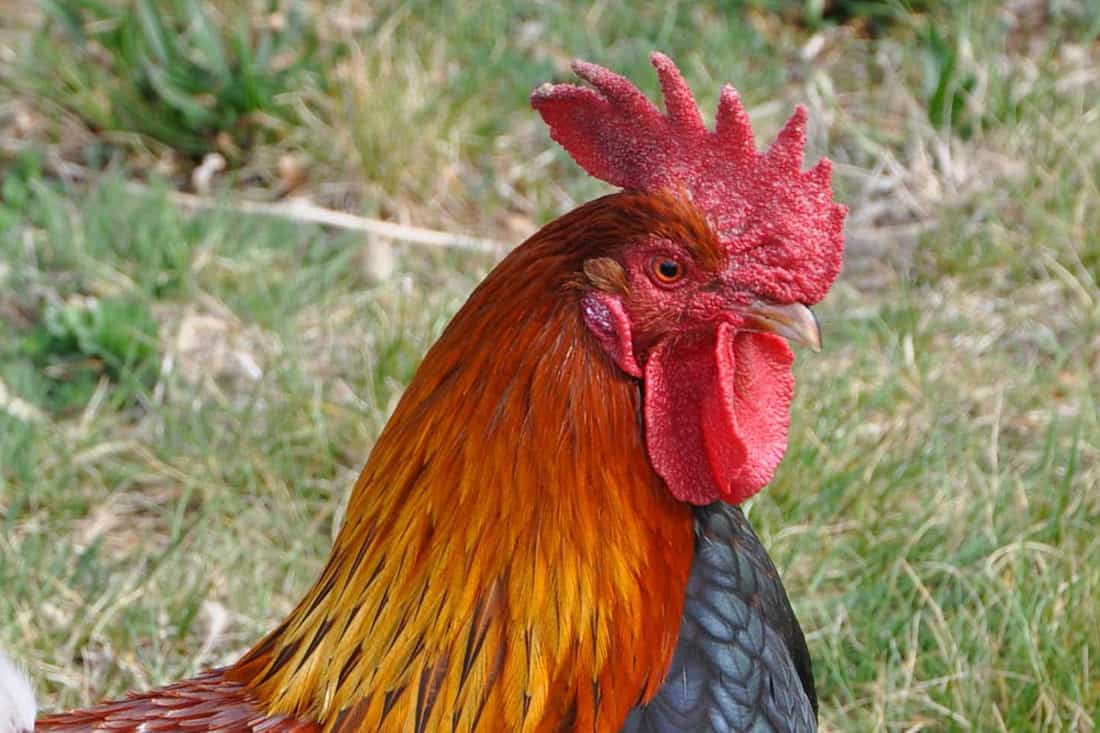
The sound a rooster’s crow produces is among the most often voiced concerns about chicken raising. The constant crowing is the main reason why numerous authorities prohibit rooster ownership. A rooster’s crow is normal; it characterizes them and their existence.
You might be glad you’ve learned some methods to keep a rooster from crowing. Although those methods don’t entirely stop them, it only lessens or minimizes their crowing habit and noise.
However, you might also wonder why your rooster doesn’t crow at all anymore, or it totally stops crowing for a couple of days or longer. That’s a real issue you got there. Here are some reasons why:
Injury
If a rooster is injured, he is aware of his fragileness. Remaining quiet is an intuitive behavior to avoid attracting any danger, such as predators. An injured, weak rooster is unable to defend himself and his flock from predators. If a rooster does not crow, he thinks he is inconspicuous and off the radar of predators.
Bullying
In a flock, when the top rooster and, sometimes, his deputies are particularly domineering or violent, a lower-ranking rooster may be the target of persistent bullying and abuse. After numerous harassments from the top rooster and perhaps his accomplices, the bullied rooster may succumb to self-preservation and become quiet.
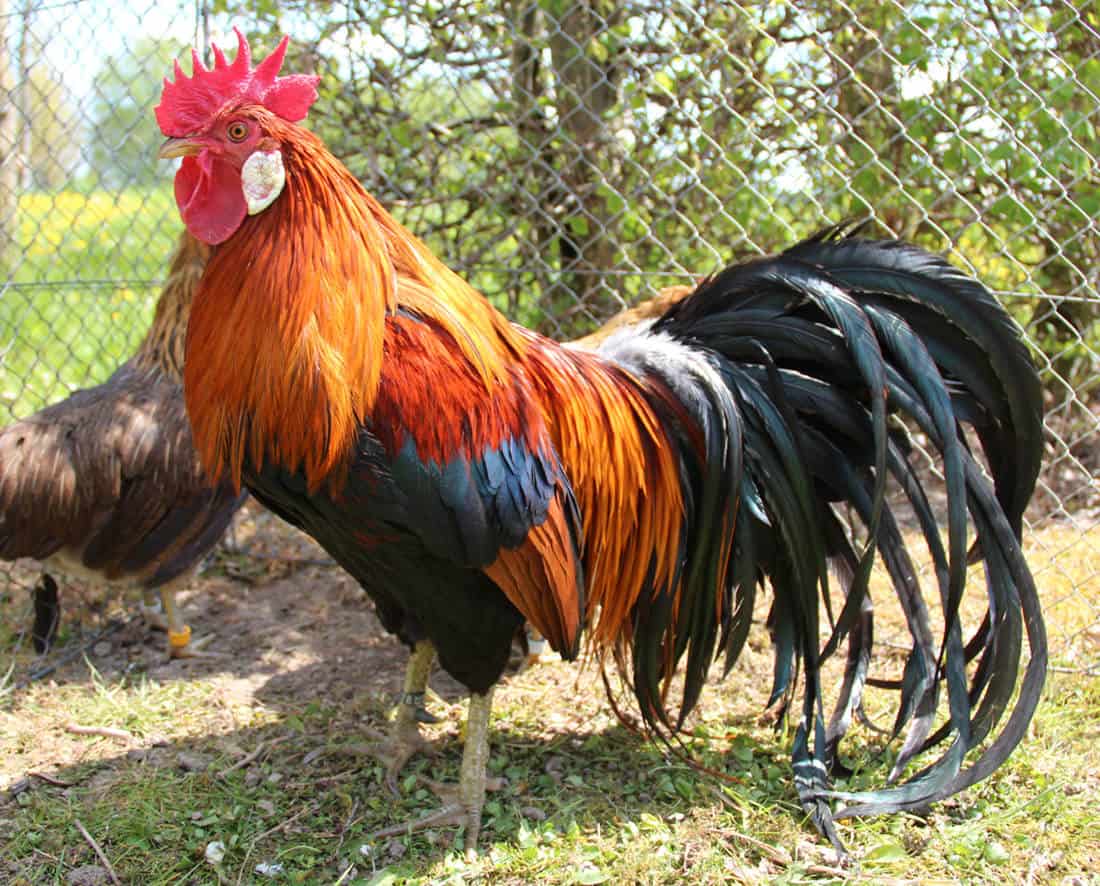
Illness
Sick roosters do not crow. However, it is not because they are evading predators. When an ill rooster does not crow, there are two reasons for his quietness. First, the effort spent crowing vigorously all day was redirected to combating the infection or disease infiltrating his body.
Second, by being quiet when sick, the injured rooster avoids attracting his flock’s other roosters, who might gladly switch on one of their own to reorganize the pecking order or hierarchy to their benefit.
Age
Occasionally, a rooster will not crow merely because he has not achieved that degree of maturity. Around eight weeks up to ten weeks old, young roosters usually crow for the very first time, sometimes sooner or sometimes later. Usually, those first crows are unique and show a slight likeness to a mature rooster’s crow.
Some Noteworthy Tips About Crowing Roosters
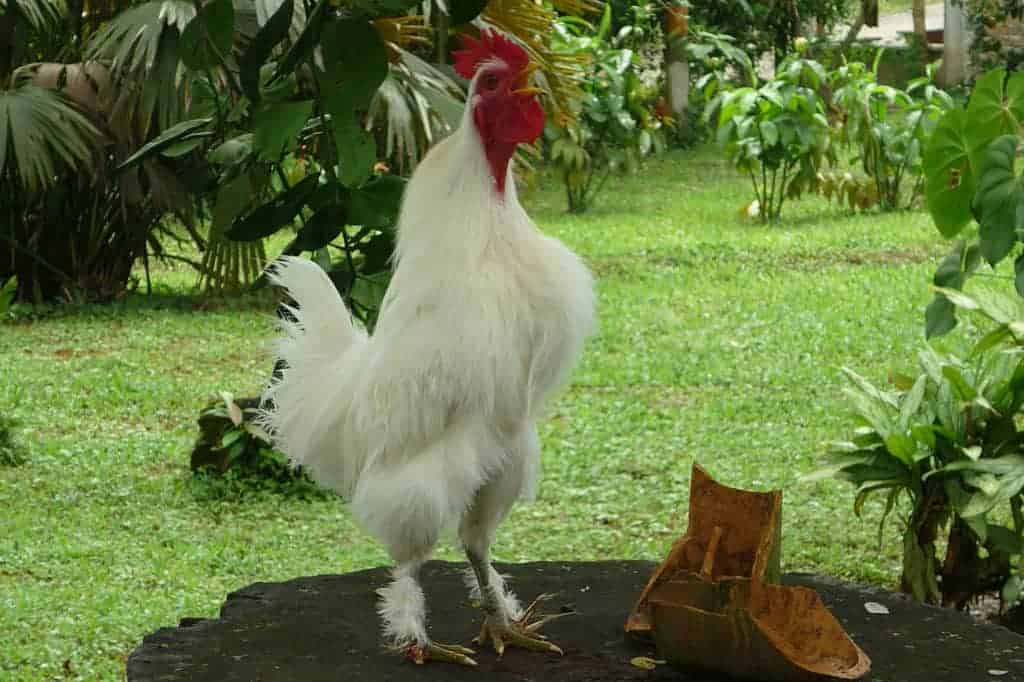
Roosters are sometimes a point of controversy for backyard flock owners. That is why the search for how to keep a rooster from crowing doesn’t stop. These endearing gentlemen may be a tremendous asset in maintaining your flock’s safety and happiness.
At the same time, a loud wake-up call may be too much for a leisurely weekend morning. Crowding can be a significant irritant, but with a bit of patience and planning, you can create a backyard heaven that will please everyone, even your neighbors.
Acknowledge and Obey the Law
Various municipalities across different countries have varying rooster regulations. While some of them expressly ban roosters, most of them make no such provision for the boys. Chickens are, after all, chickens!
Every society has its own set of regulations. Consult your local authority to determine which ones appeal to you. Nevertheless, although roosters are legally permitted, no community will permit excessive noise. Your neighbors often determine inappropriate noise. So take measures to reduce it or risk losing that noisy rooster.
Summary
Learning how to keep a rooster from crowing is not bad. Shutting your noisy rooster up is not as cruel as some people think. It’s for your flock’s welfare. As well as yours and your neighbors in the community you live in. Ensure that you don’t unintentionally harm your boys when initiating the procedures. Best of luck!
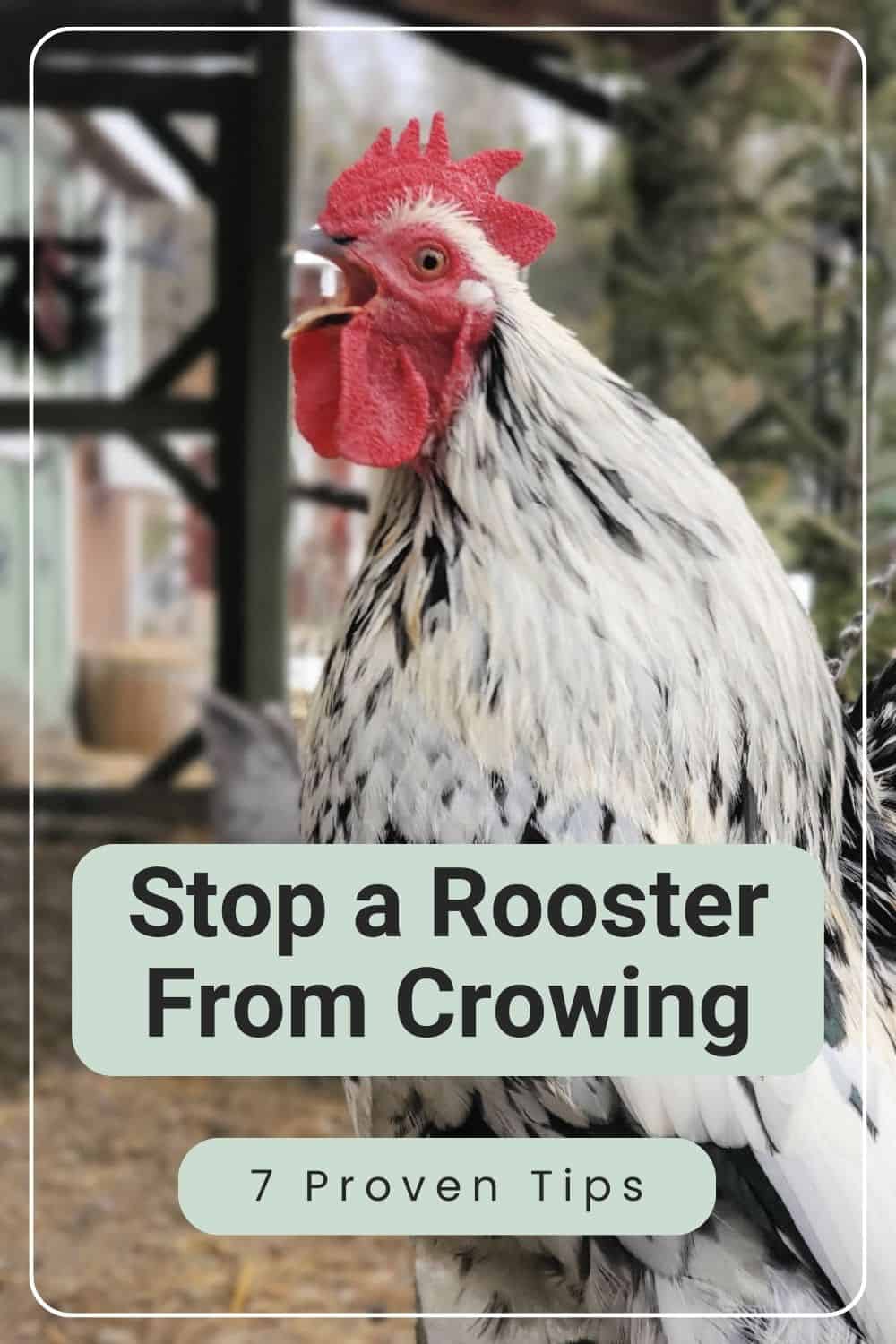

Joseph Hudson has been raising chickens for over 15 years. In 2018, he completed the Agriculture & Natural Resources program at Mt. San Antonio College. He currently raises over 1400 chickens on his 7.5-hectare farm. He keeps sharing his experience on raising healthy and happy chickens on Chicken Scratch The Foundry.
